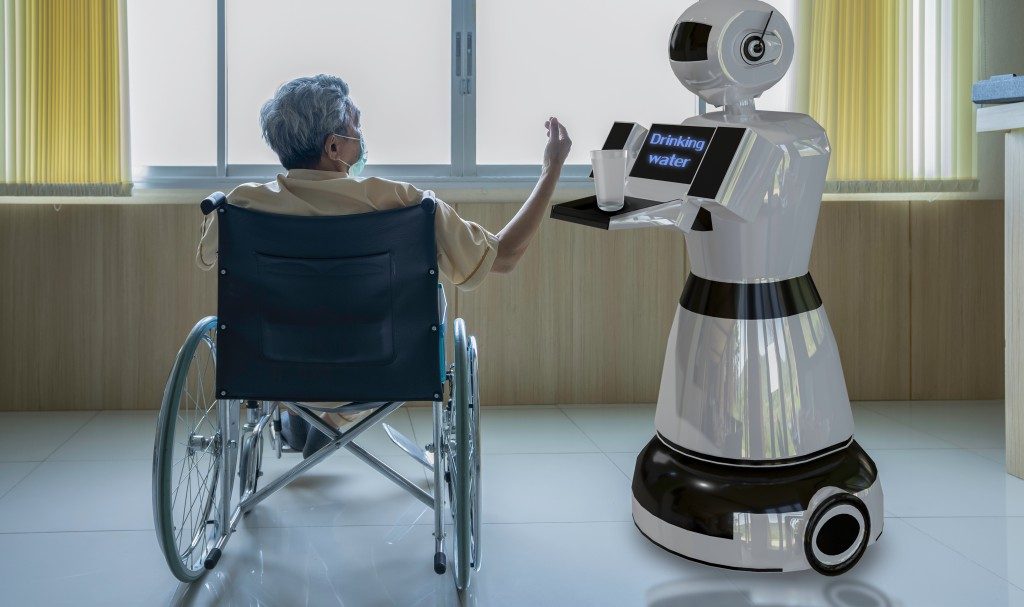As Germany faces a severe shortage of care workers, AI robots are emerging as a potential solution to help elderly individuals live independently for longer. However, the limits of this technology remain a subject of study.

Robots as the next wave of AI: Addressing demographic challenges
Germany is grappling with a significant care crisis, with over 150,000 care workers currently needed to meet the growing demands of an aging population. The initiative “Pflegenot Deutschland” (Nursing shortage in Germany) highlights this gap, emphasizing the urgent need for innovative solutions. Among the most promising approaches are AI-driven humanoid robots, which could soon play a vital role in assisting the elderly with daily tasks and supporting care professionals.
The demographic shift, coupled with changing lifestyles, has left many elderly individuals increasingly isolated, with families living far away or less involved in their care. As a result, more seniors—many of whom are still healthy—require assistance with everyday activities, from meal preparation to medication reminders and rehabilitation exercises. AI-powered robots could step in to fill this gap, providing much-needed support at home.
Pioneering research: Garmi, the flagship humanoid robot
In Garmisch-Partenkirchen, Bavaria, a dedicated research campus is exploring the potential of AI robotics in elderly care. The Technical University of Munich (TUM) has established the Munich Institute of Robotics and Machine Intelligence (MIRMI) in collaboration with various partners to investigate how robots can assist in daily life. The centerpiece of this research is “Garmi,” a humanoid robot designed to perform tasks such as serving water and tea, coordinating with medical professionals, and conducting training sessions with patients.
Garmi is currently being tested in pilot apartments within a care center on the campus, allowing researchers to refine its capabilities in real-world settings. Dr. Martina Kohlhuber, the scientific director of the campus, explains that robots like Garmi could help elderly individuals maintain their independence for longer, while also easing the burden on care workers and family members.
AI robots at home: Enhancing independence and care
The tasks that Garmi and similar robots can perform include fetching items, reminding users to take their medications, facilitating communication with family, friends, and doctors, and conducting telemedicine examinations. Additionally, Garmi can assist with rehabilitation exercises, potentially speeding up recovery times and freeing up valuable time for care workers and physiotherapists.
However, the capabilities of these robots are not without limitations. Dr. Kohlhuber notes that tasks requiring close physical contact, such as personal hygiene, remain challenging for robots to execute. Nevertheless, robots can still assist care workers by delivering supplies, thereby allowing more time for direct patient care.
While the integration of robots into everyday life is still in its early stages, the enthusiasm among elderly users is growing. Many seniors are curious and open to the potential of these systems, recognizing them as a part of the solution to the care crisis. The goal, as Kohlhuber emphasizes, is not to replace care workers but to enhance their roles, making the profession more attractive and allowing for more personalized care.

Beyond Germany, global tech leaders are also advancing in this field. Tesla’s CEO, Elon Musk, has introduced the “Optimus Bot,” which he views as a key future product for his company. Similarly, the California-based robotics firm Figure is developing the “Figure 02,” envisioned as a future household assistant capable of lifting up to 20 kilograms and working for 20 hours on a single charge.
Despite the progress, it will likely be several years before robots like Garmi become widely available. Challenges related to ethics, safety, regulation, and funding must be addressed before these robots can be fully integrated into the healthcare system. The high cost, currently ranging from $30,000 to $150,000 per robot, also poses a significant barrier for widespread adoption among the average elderly population in Germany. However, with continued advancements, AI robots may one day become a preferred investment for seniors seeking support in their later years.






